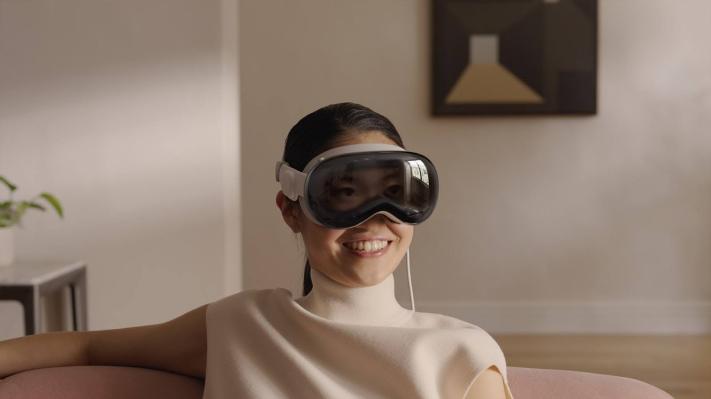Mark Zuckerberg may be laughing off the competition in the AR/VR headset market, but Apple’s Vision Pro is gaining traction — with developers, at least. On Tuesday, Apple senior vice president of Worldwide Marketing, Greg Joswiak, announced on X that the company’s “spatial computing” headset now has more than 1,000 apps designed specifically to take advantage of the new hardware. That’s up from the 600-plus apps Apple said just two weeks ago would be available at the time of the device’s launch, and far more than the 150-plus apps that had been ready in the days leading up to the Vision Pro’s arrival.
While reviews, besides Zuckerberg’s obviously biased take, have dubbed the Vision Pro the best mixed reality headset on the market, although still very much a work in progress, its $3,500 price point could mean a limited market for developers. However, App Store data indicates that over half of developers have been embracing the paid app business model, instead of freemium or free with in-app purchases or subscriptions, as elsewhere on the App Store. That means even if only a few hundred customers download their app, they’ll receive a guaranteed income from their work.
While the Vision Pro is capable of running more than 1.5 million compatible iOS and iPad apps, spatial apps built for the headset are those that have been designed to leverage its specific capabilities. This includes a number of streaming apps like Disney+, ESPN, MLB, PGA Tour, Max, Discovery+, Amazon Prime Video, Paramount+, Peacock, Pluto TV, Tubi, Fubo, Crunchyroll, Red Bull TV, IMAX, TikTok and MUBI. (Netflix is a notable holdout).
The PGA Tour, MLS, NBA, Red Bull TV and others have also built apps for the new device, as have productivity app makers like Microsoft, Slack, Notion, Zoom, WebEx and others. But many independent software developers have embraced the new platform, too, filling in gaps, as Christian Selig did by building a YouTube app called Juno, or tackling areas that don’t have as much competition yet, like fitness, science or mindfulness, among other things.
One developer, Jordi Bruin, is even working to improve an area where the Vision Pro falls short with his Persona Studio app that lets users view and record their “Persona” — a 3D avatar used when communicating with others via Vision Pro. Apple’s version of personas makes people look odd and unlike themselves, but Persona Studio aims to improve that.
The growth in Vision Pro apps so soon after launch indicates that many developers in Apple’s community still see the company as offering a viable platform for their success, despite its recent anti-developer measures to make regulations like the EU’s DMA completely toothless. Several larger developers have come out against Apple’s DMA plans, like Meta, Spotify, Epic Games, Mozilla, Microsoft and others, which led some to believe that the Vision Pro could suffer from a developer boycott or backlash.
While there may be a few significant holdouts from these larger players, it’s clear that many in Apple’s developer community were interested in building for the new device, after all. In addition, Y Combinator today put out a new call for startups, and added “spatial computing” — Apple’s term for mixed reality (AR/VR) — to its list of companies it wants to fund, suggesting further growth in this market is still ahead.
